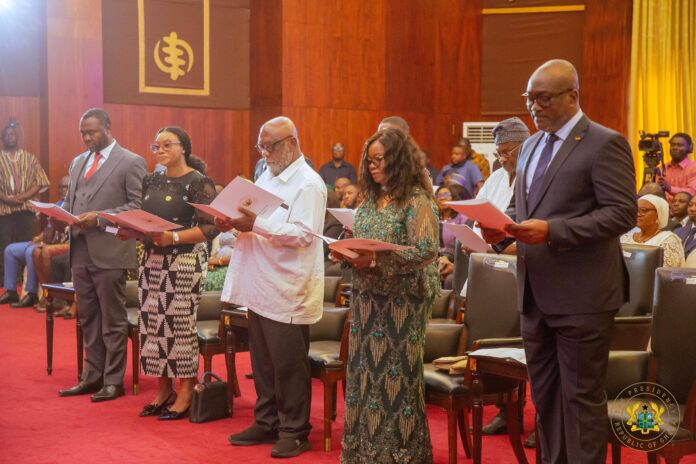The Constitutional Review Committee (CRC), tasked with proposing amendments to Ghana’s 1992 Constitution, on Wednesday engaged with journalists and the social media community to ensure that the review process encompassed diverse views from all stakeholders.
Speaking at the forum, Professor Amin Alhassan, Director-General of the Ghana Broadcasting Corporation (GBC), said that despite the growing influence of social networks, there remained a critical need for public-interest media like the GBC, which prioritises national welfare over profit.
He noted that government and public broadcasters could play a key role in curbing misinformation and offering reliable content that serves the national good.
“And even in a case where everybody has access to social media, you will see a social media platform that is trustworthy. And that cannot be subjected to the private interest of the owner of the platform,” he said.
“That is what GBC does. It seeks to counter the tendency of privately owned media to pursue their own interests.”
Prof. Alhassan called for strategic investment in radio broadcasting to strengthen Ghana’s democratic process.
He advocated improved funding for GBC to enhance the capacity of radio to deliver diverse, accessible, and accurate information to all citizens—reinforcing the vital role that public broadcasting plays in national development and social cohesion.
Ms. Rebecca Ekpe, Public Affairs Officer at the Ghana Journalists Association, raised concerns over the mandates of media regulatory bodies such as the National Media Commission and the National Communications Authority, which she said must be clearly defined.
She emphasised the need to tackle misinformation and disinformation, which threaten Ghana’s media ecosystem and democracy, as part of the constitutional amendment process.
Mr. Sulemana Braimah, Executive Director of the Media Foundation for West Africa, stated that about 70 per cent of radio stations in the country are owned by politicians and are often used to advance partisan interests.
He expressed concern over the growing trend of using social media platforms to commit fraud, promote money-doubling schemes, and advertise all kinds of unapproved herbal concoctions.
He therefore urged the CRC to review media-related provisions of the Constitution, including those concerning media content regulation and the process for securing frequency authorisation from the National Communications Authority.
Other speakers at the forum called on the CRC to address issues such as media guidelines, social media regulation, media content control, and hate speech in the ongoing constitutional review process.
ALSO READ:



